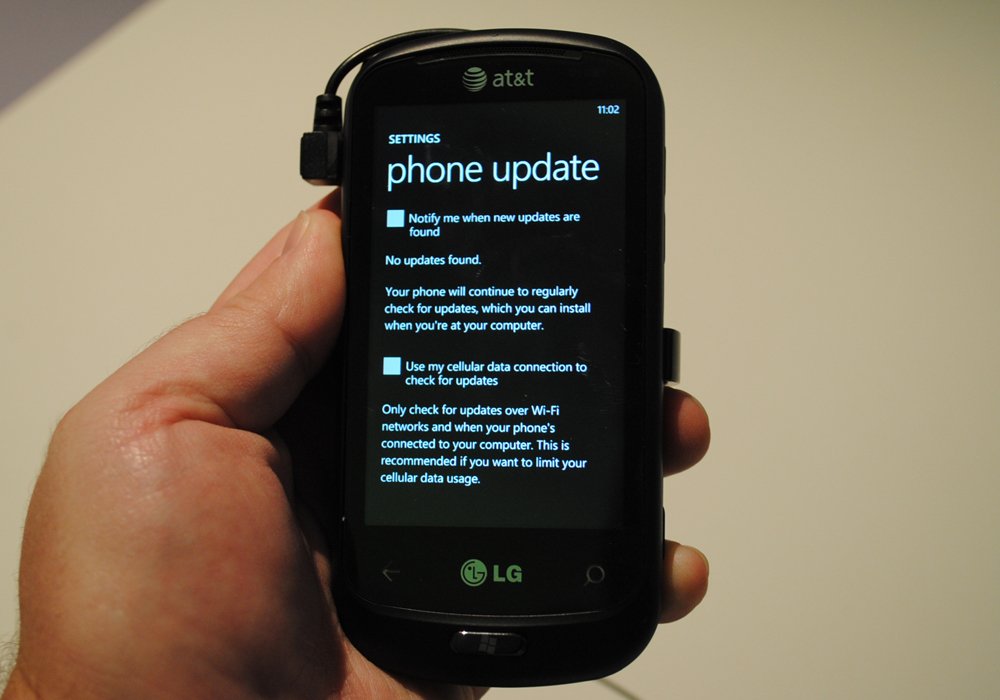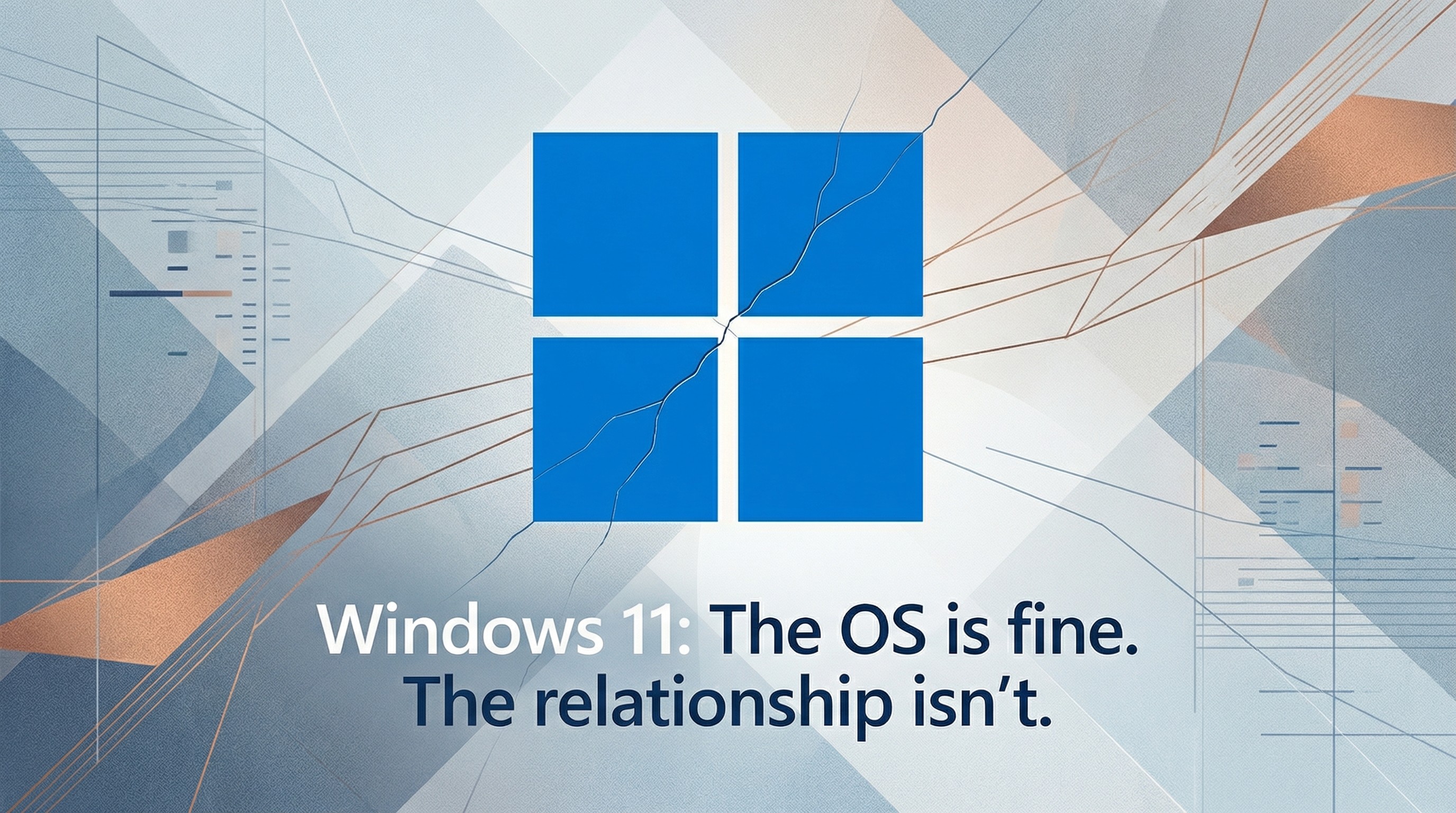Windows Phone 7 and OS updates: lots of speculation, little to go on

Lately, there has been a lot of talk about how updates will work on Windows Phone 7. Now there's talk about talk about talk in Ars Technica's latest article on the subject. Much of this we find amusing but not too illuminating. Still, we'll take a crack at why some of this is wrong and misguided.
The issue, we believe, starts from what Microsoft's Charlie Kindel said awhile back about WP7:
"We want everyone on the same version of the OS." He continued, "Updates will be available through the Zune desktop or over the air." Larger updates would be handled through the Zune software while minor updates would be handled OTA.
Recently however, Windows Phone Thoughts had an in-depth interview with Andrew Brown, Program Manager for Windows Phone Update who stated that OTA updates are now out of the picture.
Reason? Read more to find out why and why some of Ars Technica's arguments are either incorrect or unimportant.
So the justification by Microsoft for shelving OTA updates is due to them having concerns about reliability. From that same interview, Microsoft's Brown continues:
For our first version, we really wanted a consistent, reliable solution that our customers could trust 100%. Connecting to a computer and using the Zune client software for the update gives us several advantages, including a large screen for the update user interface, the ability to charge the phone while updating, and a full backup of the phone in case any problems occur.
Basically, Microsoft considers the OTA program a little too risky on their 1st generation OS and would prefer tethered updates through Zune. However, the framework is there for when they do want to jump to OTA. Fair enough, we say. Could you imagine an OTA update bricking thousands of devices and the bad press that would give? So you need to sync with your PC to update--that was a given anyways for large firmware updates. Now you'll have to do it for those potential Mobile Internet Explorer updates or other fixes.
But we take big issue with this Ars's statement:
All the latest news, reviews, and guides for Windows and Xbox diehards.
We were originally promised iPhone-like upgrades for Windows Phone 7. Better, in fact, due to the over-the-air updating. And we're not going to get it.
This is a false assertion. Who exactly made that promise? We were hard pressed to find this quote or implication anywhere. The closest was Kindel's statement above. But that's not iPhone-like at all. The only mention of carriers was not a quote from Kindel but the author's own words. Mind you, that was before the OS went Gold and yes, sometimes plans change during development. This happens all the time and we figured people we be used to that now. But saying we were promised this feature by Microsoft is going a bit far in this case.
Second, they spend a lot of time over a quote from Microsoft's Joe Belfiore at the reviewers workshop where he said "Carriers could in fact block updates to sell you a phone. That can happen." That's quite revealing and newsworthy. Except for the followup, which they de-emphasized: "But we don't expect that to happen."
Granted, that is an interesting revelation. Almost. We don't even know what it really means since that all we have on the matter. All we know is Microsoft doesn't expect it to happen--so why should we? Heading back to the interview with Microsoft's Brown, he mentions this:
But OEMs and Mobile Operators can submit their own update code as part of an overall update that is delivered through Microsoft Update. We definitely will work very closely with our partners to make sure updates are tested thoroughly, but also released in a timely fashion, following standard practices in the industry today for smartphone devices.
The carriers, Microsoft and OEMs are all partners here. That's not the iPhone-model where they run roughshod over AT&T (well, except when allegedly colluding on blocking VOIP solutions). And no one said they would be like Apple in this regard. Carriers are not expected to purposefully block an update and it would be very bad press in such a competitive market as today. Not to mention, one would think Microsoft would not be too pleased either.
Finally, all we know is we don't know. Microsoft is constantly evolving, evidently changing day by day. While we have no love for the carriers and prefer the dumb-pipe model too, we understand that pushing them out of the picture 100% is not an option. Not immediately at least. The fact that we don't' have bloatware on our phones and we can uninstall all software (including carrier bundled software) is already a huge victory. How about we let the dust settle on v1.0 and wait and see what actually happens, then discuss? Seems a lot more productive than breaking down English imperatives in an attempt to find the truth value of statements, like we were in Semantics 101.
Now pardon us, we have phones to play with.

Daniel Rubino is the Editor-in-Chief of Windows Central. He is also the head reviewer, podcast co-host, and lead analyst. He has been covering Microsoft since 2007, when this site was called WMExperts (and later Windows Phone Central). His interests include Windows, laptops, next-gen computing, and wearable tech. He has reviewed laptops for over 10 years and is particularly fond of Qualcomm processors, new form factors, and thin-and-light PCs. Before all this tech stuff, he worked on a Ph.D. in linguistics studying brain and syntax, performed polysomnographs in NYC, and was a motion-picture operator for 17 years.
